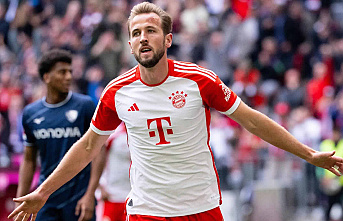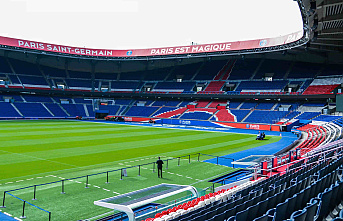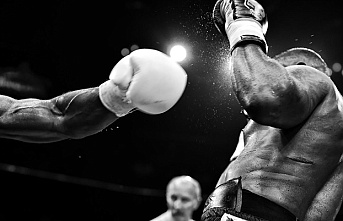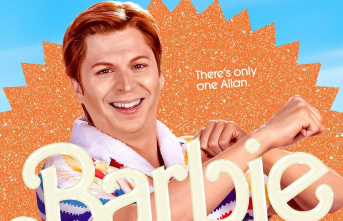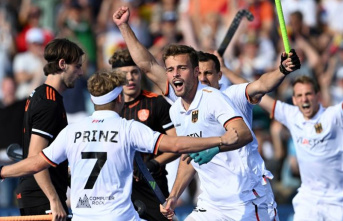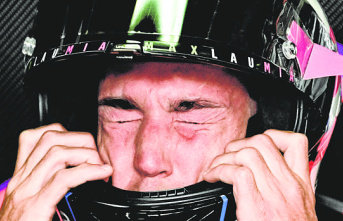The new European archery champion is Spanish, his name is Miguel Alvariño and at the age of 28 he was placed at the top of the world ranking in the category. After having won European gold in Baku in 2015, he managed to repeat this year in Munich where he also won a team silver alongside Pablo Acha and Daniel Castro.
It has been placed at number one in the world ranking, how do you live it?
I'm very happy, it's incredible especially for getting it against professionals, I'm not. Although I train like a professional, I am not for all intents and purposes. I don't charge anything, I spend my savings on this, on my training. Neither I nor my 'staff' receive a salary, we do it for the love of this sport.
In international competitions the Federation helps you, but I have no salary. Nobody pays me to train, neither the physiotherapist nor my sessions...
Where did your passion for archery come from?
In a town in Galicia, As Pontes. My former coach stopped by the school to test the children and I was hooked from that moment. I was 14 years old, since then I started shooting and I started setting goals.
What are the main difficulties of being a goalkeeper in Spain?
The main one is that we are not professionals. We have scholarships and if we are lucky we can get to compete. If not, it is the individual work of each one and it is a 'betting on the sport'. It is difficult to measure up to countries like Turkey, Germany and Italy, where the goalkeepers are professionals, have a salary and can dedicate themselves to this completely. I can not do it.
Do you do other things besides archery?
I am getting my license to drive trucks and buses, the rest of the time I dedicate myself to archery because this year I have planned it that way. This means spending your savings on this sport.
Is the role of the Federation important for the development of this sport?
Of course, if the clubs could make better facilities, with aid, large investments would not be needed. What we need is a field and a 30-meter room with the possibility of training inside and outside, only then would it make a big difference in this sport. In Spain we have outdated facilities, in winter it rains a lot and we cannot train because there are no covered structures, me and my colleagues have to train outside while our rivals are high-performance athletes and with professional teams. In these circumstances, I tell myself that I always start losing 1-0.
In a sport that requires so much concentration, how do you prepare for this aspect?
I work with a coach, Cristina, who helps me on a mental level, one of the most important aspects of this sport. To train ourselves we dive in apnea, we do a lot of breathing, relaxation and visualization exercises.
What do these trainings consist of?
The visualization can be done in first, second or third person: you visualize yourself doing the tournament with all the circumstances that may happen, such as rain, wind or clear sky. That way you are prepared when you get to the championship for any eventuality. For the relaxation part I do exercises that help me to have the lowest possible heartbeat, to reach a level of tranquility. We can reach 160 beats competing, but you don't see it from the outside, the only thing you see is that I don't move, we seem calm.
How do you get that?
I do cardio for at least 30 minutes a day and twice a week I do an hour, while on alternate days I train two different muscle groups. On a technical level, I shoot arrows for six hours, which is 300-350 arrows a day. If you think that opening the bow I generate a force of 23 kilos, and if you consider the number of arrows I shoot, then the effort is understood there. To all this must be added the hour and a half in the gym that I do before shooting with a bow. I try to train as much as possible, including my mind, to be as complete as possible.
What are the complexities to handle a bow?
The problem is that to shoot an arrow you have to carry the kilos you generate, plus the weight of the bow, which can vary, sometimes 3 or 4 kilos. When you open you have a lot of weight to support, plus the pressure of the competition. A qualifying round is 22 arrows, one millimeter you move changes everything. Imagine the maximum pressure of being in a world competition and it all adds up. From the outside it seems very simple, but for me it is one of the most complete and difficult sports in the world.
When it comes to competition, what is the part that makes the most effort as an archer, what types of injuries can occur?
The shoulders are the most requested part due to the weight of the bow that the body must support. The muscle that we exert the most is the bowstring shoulder, archers usually have injuries at this point because obviously it is the part that we use the most repetitively every time we throw. I've been shooting since 2008 and luckily I've never been injured.
Is an archer born or can it be built with training?
This is a bit like everything in life, if you are born with 'stars' you have the easiest way. I, for example, was in a club with two other goalkeepers and was the worst of all, but now look where I've come. It's work, work, work. If you are born with a talent, it may be that you arrive earlier, but also by working hard you can reach the goal.
What are the biggest differences between competing individually or as a team?
I face it the same because I want to win everything; obviously as a team if you fail there are teammates who can help you and save you or vice versa. I don't feel any different competing alone or as a team.
Your goals for the future?
Improve and take steps to be better every day, at the level of titles I can't predict much because in this sport there are many variables and conditions that can mark a competition.
After two European golds, one World gold, what is the missing step to reach the end of the Olympic Games?
You have to keep trying in this line, but above all enjoy what you do, it's the most important thing. Always give your best, in the end you reach the goal. These last two years have been the worst of my sporting career, but finally here I am back.
Despite all the titles won, what is your main motivation to continue training and fighting?
What I do is try to be better every day, the limit is perfection. I am not going to relax, right now I am also training, at the end of the season I will assess it to look for weak points and improve them for the following year.
What is the greatest achievement, beyond trophies, that you have achieved thanks to this sport?
On a human level, this sport has taught me a lot. After the hard blow of the pandemic and the Tokyo Games. It has shown me that I am capable of the impossible, of being there again, reaching number one in the world ranking. It has made me mentally strong and above all it has convinced me that I do not give up in any circumstance, facing life and the future.
Do you feel more pressure after winning this European?
Not because I feel that I should not prove anything to anyone, I am aware that I cannot win all the competitions, what I am clear about is that I must give everything of myself.
Who inspires you as an athlete?
My idols are Rafa Nadal, Fernando Alonso and Marc Márquez. A combination of the three of them would form my ideal athlete, I would like to be the best version of the three. They are examples of overcoming, sacrifice, humility, all of these are values in which I identify a lot.
What are the fundamental keys that you would suggest to those who want to approach this sport?
The fundamental keys are passion, humility and strength. This is what differentiates a champion from a 'normal' person.


